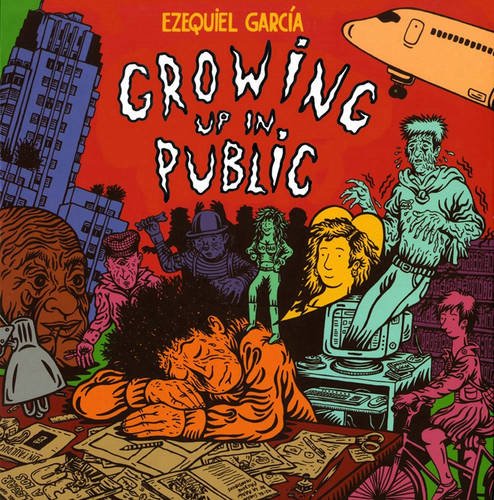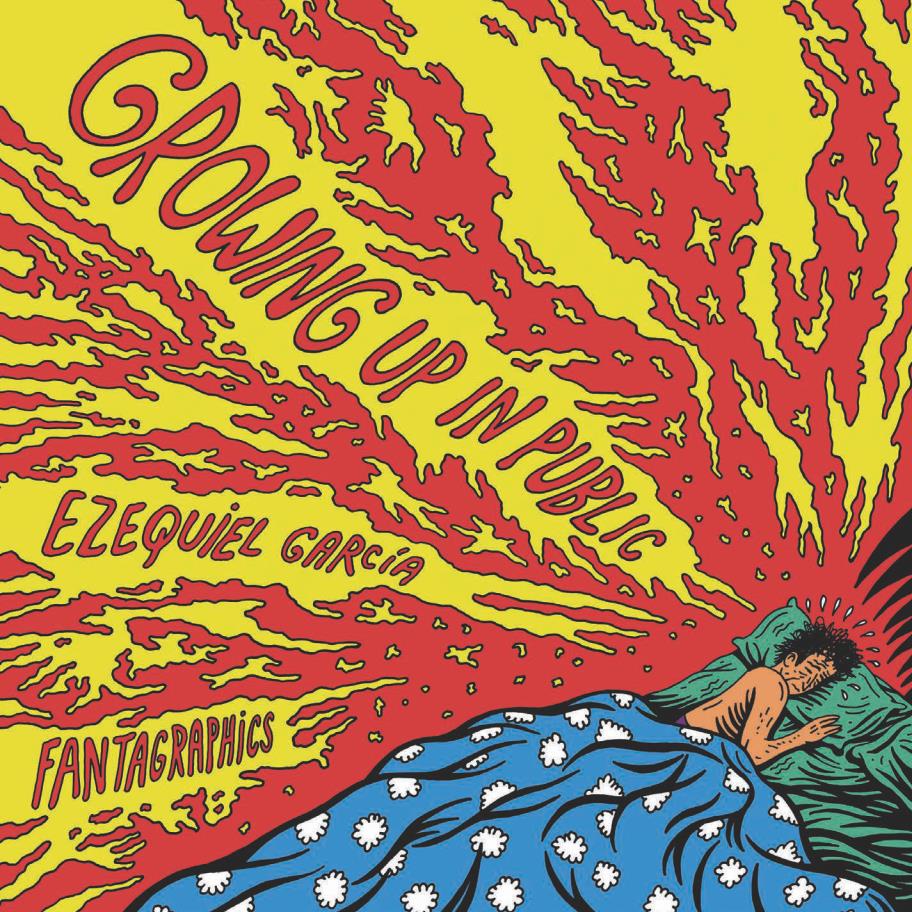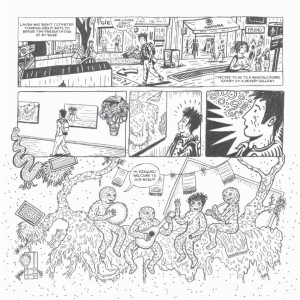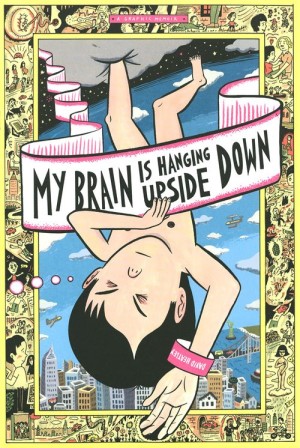Review by Ian Keogh
Who knew American underground comic sensibilities were alive and healthy in Argentina? Under the guise of an autobiographical meander through a period during his early thirties Ezequiel Garcia pulls his influences from far and wide to create a compelling portrait of Buenos Aires in the first decade of the 21st century.
Garcia, at least in the manner he presents himself, is an engaging and likeable host. We’re sucked into his world and concerns with laconic ease, and he supplements that world with brief fantasy interludes. The sample page is his reaction on viewing the work of a new artist at a gallery opening. He accentuates the difference between his values and those of his parents while simultaneously presenting a loving relationship, a line straddled with ease when dealing with other elements seemingly at odds.
Artistically Garcia has a loose style that’s heavy on the black ink. His rubber-limbed avatar strolls past beautifully sketched classical architecture, or recalls the alluringly designed cinemas of his youth, or watches the industrial wasteland through the car window, all observed with a fine urban sketcher’s eye. This incorporates the good along with the bad, although in a subtle fashion, as Buenos Aires is a city in transition, with moneyed companies ignoring conservation orders and the authorities in turn welcoming them. It becomes somewhat of a theme.
There’s no angst here. Garcia has a sense of perspective about his issues, being dissatisfied rather than enraged, and is a genial host, but just when you think you have him pinned down, he veers off. He delves into a wild interpretation of Jonah’s biblical story as ranted by a preacher over sixteen pages. While seemingly unconnected to the remainder, this is brilliantly presented, Garcia’s panels resembling old style bible woodcuts. Or there’s his insecurity dream, also rendered in lengthy detail. These interludes could be viewed as stifling the momentum of the ongoing autobiographical passages, but instead consider Growing Up in Public as a form of virtuoso one person anthology and they complete a picture.
Garcia even provides his own soundtrack of favourite 1980s Argentinian rock music (Jorge Serrano, Los Encargados and Los Auténticos Decadentes among others), in a manner that really builds up the love. They’re disappointingly sedate after his opening admission the graphic novel’s title is taken from the Lou Reed album. In Britain of course, the title is more widely associated with Professor Green.
By the conclusion the author has grown and the reader has learned that Garcia is a multi-faceted cartoonist to watch. Growing Up in Public is an impressively individual approach and Garcia will only improve.






